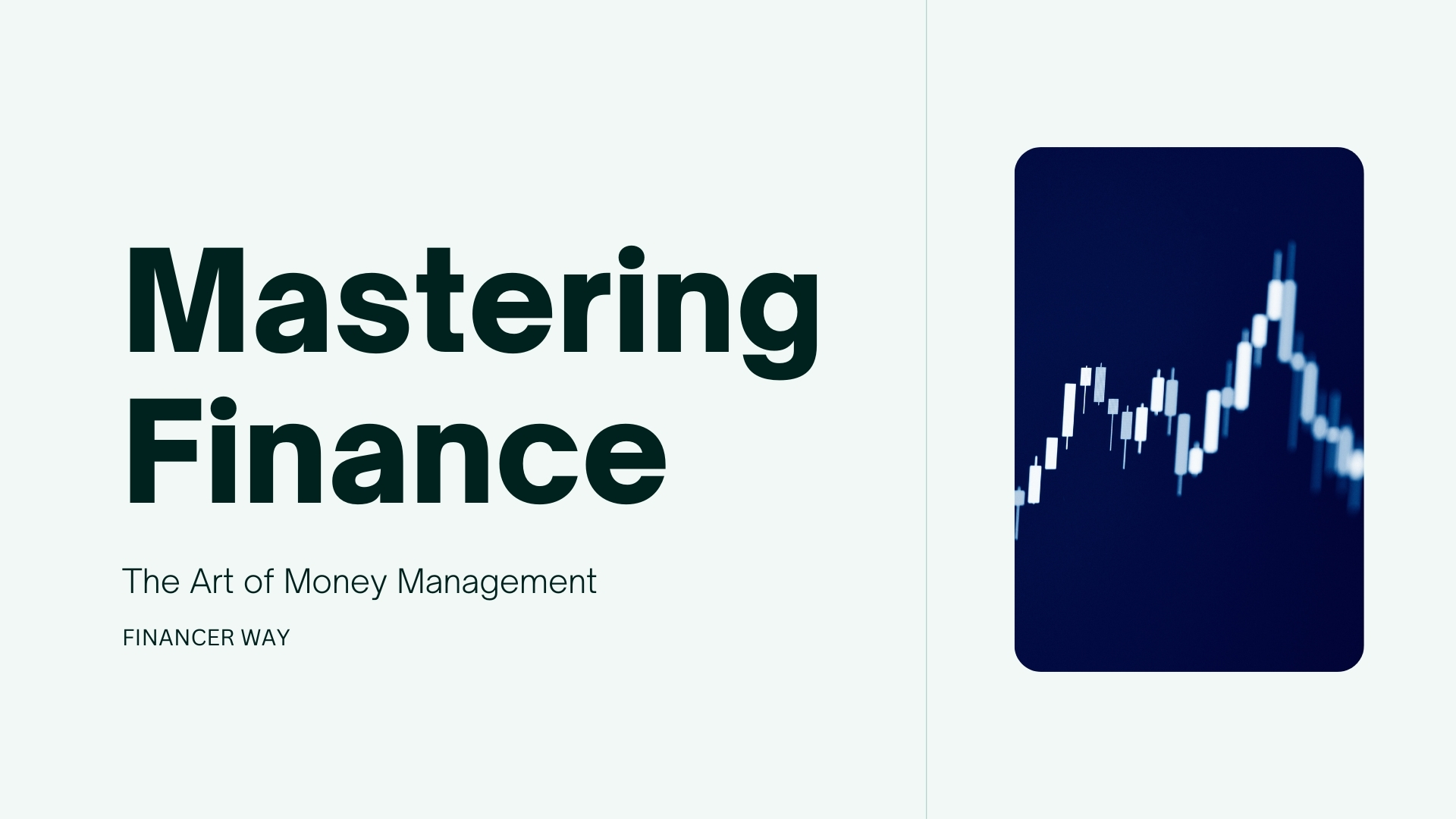“Discover the best Money Managers and trusted financial advisors. Is it worth hiring a wealth manager? Find out now!”
In the dynamic world of finance, it can be difficult to take advantage of investment opportunities. With an ever-changing market landscape, individuals and businesses alike are seeking the expertise of Money Managers to guide their financial ships to prosperity. In this comprehensive guide, we delve into the areas of Money Managers, highlighting the strategies and ideas used by the best in the field.
Understand money management
Wealth management is not just about increasing wealth; It is a careful process of allocating, investing and managing risks to achieve specific financial objectives. At its core, effective money management requires a deep understanding of market trends, risk assessment, and asset allocation strategies.
Features of the best money managers

| Characteristics | Description |
| 1. Clear Financial Goals | Define and prioritize specific, measurable, achievable, relevant, and time-bound (SMART) goals |
| 2. Budgeting Mastery | Create and stick to a comprehensive budget, tracking income and expenses |
| 3. Debt Management | Develop a plan to eliminate high-interest debt and maintain a healthy credit score |
| 4. Investment Savvy | Make informed investment decisions, diversifying portfolios and minimizing risk |
| 5. Emergency Funding | Maintain a cushion for unexpected expenses, avoiding financial stress |
| 6. Regular Monitoring | Continuously review and adjust financial plans to ensure progress and stay on track |
| 7. Financial Literacy | Stay informed about personal finance and investing, making educated decisions |
| 8. Discipline and Patience | Avoid impulsive spending and stay committed to long-term financial goals |
| 9. Diversification | Spread investments across asset classes, minimizing risk and maximizing returns |
| 10. Professional Guidance | Seek advice from financial experts when needed, ensuring optimal financial decisions |
Experience and knowledge
The best wealth managers have extensive experience and knowledge in the financial sector. With years of exposure to volatile markets and consistent returns, these professionals have the ability to capitalize on opportunities and minimize risk.
Active risk management
Risk is inevitable in the world of investment. However, the best money managers excel at active risk management, using sophisticated techniques to protect assets and preserve capital. Through diversification, hedging strategies and a comprehensive risk assessment, it protects its clients from market declines.
personal approach
No two investors are the same and the best money managers understand this clearly. They take a personalized approach and carefully craft investment portfolios that fit each client’s unique financial goals, risk tolerance and time horizon. By building strong client relationships based on trust and transparency, they ensure alignment between investor objectives and portfolio strategies.
Continuous learning and adaptation
In a constantly evolving financial landscape, recession is synonymous with failure. The best wealth managers embrace continuous learning and adaptation, staying up to date with market trends, emerging technologies and regulatory changes. By maintaining flexibility and vision, they seize new opportunities and face challenges with confidence.
Strategies approved by top money managers

Asset distribution
Asset allocation is the core of effective money management. Top money managers use a strategic mix of asset classes including equities, fixed income, real estate and alternative investments to optimize risk-adjusted returns. By diversifying across different asset classes, they reduce portfolio volatility while maximizing long-term growth potential.
Active portfolio management
Passive investing has its advantages, but the best money managers thrive with active portfolio management. Through careful research, fundamental analysis, and technical expertise, they identify undervalued assets, exploit market inefficiencies, and adjust portfolio allocations in response to changing market conditions. This proactive approach allows them to generate alpha over time and outperform the benchmark.
Risk mitigation strategies

Risk is an inherent aspect of investing, but the best money managers use a variety of strategies to minimize downside risks. From stop-loss orders and hedging techniques to portfolio insurance and dynamic asset allocation, they implement robust risk management protocols tailored to each client’s specific risk profile and investment objectives. By preserving capital during market crises, they ensure long-term wealth preservation and growth.
Conclusion
In the pursuit of financial success, partnering with the best money managers can make a big difference. With their knowledge, experience and proactive approach to wealth management, they navigate market uncertainties, capitalize on opportunities and safeguard their clients’ financial future. By taking a personal approach, staying up to date with market trends, and adopting cutting-edge investment strategies, they pave the way to prosperity for their clients.
FAQs
Who is a Money Manager?
The determination of the “best” money manager can vary based on several factors, such as investment style, performance, client satisfaction, and industry recognition. Overall, some of the leading names in the investment management industry include Vanguard, BlackRock, Fidelity Investments, J.P. Morgan Morgan Asset Management. However, it is important to do extensive research and consider an individual’s investment goals and preferences before choosing a money manager.
What are the typical fees for a money manager?
Money manager fees can vary widely depending on the investment company, the type of services provided, and the size of the portfolio under management. Typically, money managers charge fees based on a percentage of assets under management (AUM). The industry standard range is 0.5% to 2% of assets under management per year. In addition, some money managers may charge performance-based fees, where a percentage of investment returns is charged.
Who is the most trusted financial advisor?
Determining the most trusted financial advisor involves evaluating several factors, including credentials, experience, client appreciation, and regulatory compliance. Financial advisors registered with regulatory bodies such as the Securities and Exchange Commission (SEC) or the Financial Industry Regulatory Authority (FINRA) are generally considered more trustworthy due to their adherence to strict professional standards and regulations. It is advisable to research potential consultants, ask for references, and conduct interviews to assess reliability before using their services.
Is it worth paying a wealth manager?
Hiring the services of a wealth manager can provide many benefits, including personal financial planning, investment expertise, and peace of mind. Wealth managers provide comprehensive financial services tailored to individual needs, including investment management, retirement planning, estate planning, tax optimization and risk management. While wealth management fees may seem high, the value gained from professional guidance, portfolio diversification, and long-term wealth protection often outweighs the cost. Ultimately, whether paying a wealth manager is appropriate depends on individual financial goals, complexity of financial matters, and preference for professional guidance.
Additional information on wealth management:
Advantages of wealth management services: Customized financial planning: Wealth managers create customized financial plans based on individual goals, risk tolerance and time horizon.
Professional Investment Management: Experienced wealth managers use sophisticated investment strategies to optimize returns while managing risk.
A comprehensive approach to financial management: Wealth managers offer comprehensive services, including retirement planning, tax optimization, estate planning and insurance solutions.
Peace of mind: By entrusting finances to a trained professional, clients gain peace of mind knowing their financial future is in capable hands.
Access to special opportunities: Wealth managers often provide access to special investment opportunities, private funds, and alternative assets that are not normally available to individual investors.
Factors to consider while choosing a wealth manager: Credentials and Experience: Review the credentials, certifications and industry experience of potential wealth managers.
Customer References and Testimonials – Find references and testimonials from current or past customers to gauge satisfaction and trust.
Investment philosophy and approach: Understand the investment philosophy, strategies and risk management methods used by the wealth manager.
Fee structure and transparency: Review your fee structure, including management fees, performance-based fees and any additional fees, to ensure transparency and alignment with expectations.
Communication and Access: Review the wealth manager’s communication channels, frequency of updates, and access to address questions or concerns.
